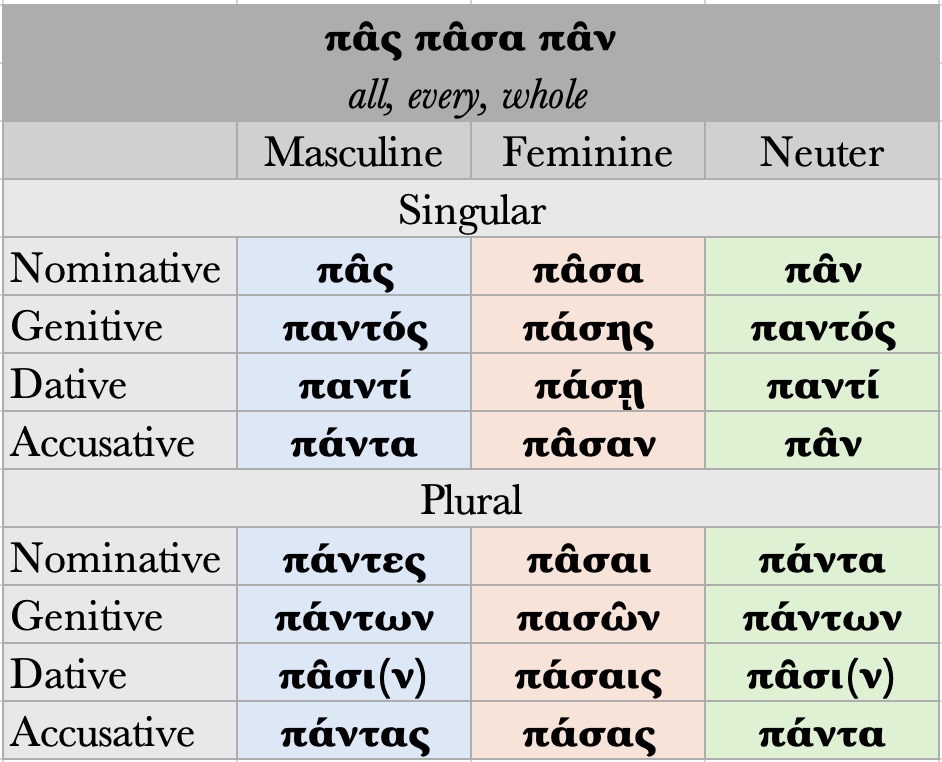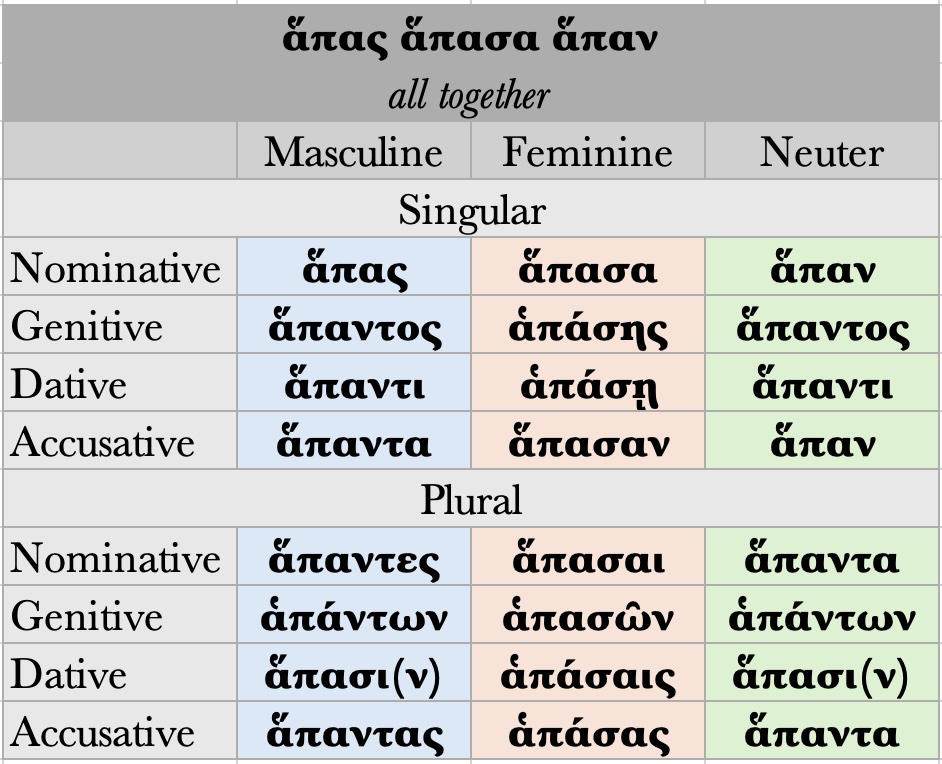27.6 πᾶς πᾶσα πᾶν all, every, whole, is an important and flexible pronoun. Given its nominative forms, it may seem surprising to know that the stem of this pronoun is παντ-. While its inflectional pattern may seem peculiar at first glance, the reasoning behind the stem changes that occur are familiar and regular.
For the MASCULINE and NEUTER, which both use THIRD DECLENSION endings, note the following inflection patterns:
- When the endings involve adding a –σ– to the stem (i.e. dative plural –σι and the masculine nominative singular -ς), the –ντ drops from the end of the stem. The –α– of the resulting new stem, πασ-, becomes long due to COMPENSATORY LENGTHENING.
- The neuter nominative singular has no case ending. Since –τ cannot end a Greek word, the –τ drops off the neuter nominative and accusative singular. The –α– is lengthened to match the masculine.
- The ACCENT pattern for the masculine and neuter is peculiar. In the SINGULAR, it is accented as though a monosyllabic noun. In the PLURAL, it is accented as though it has a persistent accent on the penult.
For the FEMININE, which uses FIRST DECLENSION endings, note the following inflection patterns:
- In all cases and numbers, the feminine stem originally added a –σ– to παντ-, which produced the stem παντσ-. The –ντ– dropped out by the Classical Period. The –α– of the resulting new stem, πασ-, became long due to COMPENSATORY LENGTHENING.
- The feminine FIRST DECLENSION ending is inflected with a short –ᾰ ending in the NOMINATIVE and ACCUSATIVE SINGULAR, and has its persistent accent on the PENULT. Its inflection, in other words, is similar to that of γλῶττα, γλώττης, ἡ.
As an adjective, the translation of πᾶς πᾶσα πᾶν depends upon its position relative to the definite article:
- Attributive: whole
- ἡ πᾶσα χώρα the whole country
- Predicate: all
- πᾶσαι αἱ χῶραι all the countries
- No article: every
- πᾶσα χώρα every country
πᾶς πᾶσα πᾶν may be strengthened by adding an initial ἁ- to its form. The new form, ἅπας ἅπασα ἅπαν all together, declines similarly to πᾶς πᾶσα πᾶν, though note the change in accentuation! In all forms, it now is accented as though it has a persistent accent on the antepenult (or penult, if disyllabic).




